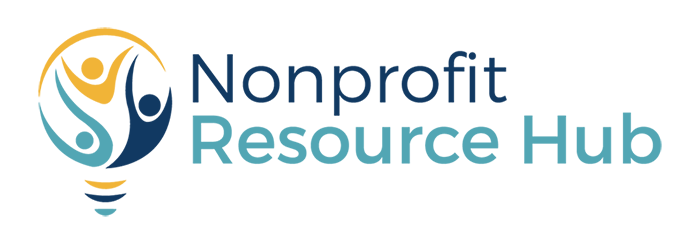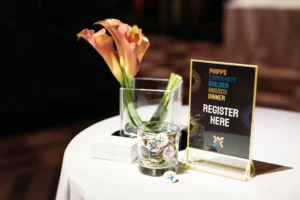We were delighted to spend some time with Tara Zier CEO and Founder of the Stiff Person Syndrome Research Foundation. The Foundation is one of 50 patient-led organizations that are strengthening rare disease communities, improving diagnosis, accelerating research, and driving progress in the fight against rare diseases through the Rare As One Network. Tara’s story is eye-opening and inspiring. Her story is one that teaches us that will, determination, and tenacity are often the driving forces behind creating awareness and finding cures for these rare diseases.
NRH: Tara, can you tell us about yourself. How and why did you choose this organization to work with?
TZ: My motivation for creating this organization is two-fold. First, the need. Second, my kids. At an appointment with Dr. Newsome at Johns Hopkins he commented, “We applied for a grant from NIH but were denied because there wasn’t enough research to support getting the grant.” That was an epiphany for me. I was in a ton of pain, barely functioning with no good treatment options available. I couldn’t sit around waiting for a solution. I was the solution. That’s why I started The Stiff Person Syndrome Research Foundation to raise awareness and funds for better treatments and a cure.
Research for rare diseases is dependent on individual donations or grant opportunities. Even though I can’t work as a dentist anymore, I am focusing on what I can do. Leading this organization has become my new purpose. Even If I were cured tomorrow, I would continue to advocate for rare diseases. There is a dire need for support, research, and leadership in the rare disease space.
I want to be an example to my children and show them that no matter what hand you are dealt, you can still thrive, be happy, and make a difference in the world.
NRH: Tell us what your goals are for your organization this coming year?
TZ: Fundraising – We need the funds to support the research and the people conducting it. Rare diseases typically don’t get the funding that other diseases do. Some institutions are unable to get funding to hire fellows to pursue research, which is a recurring annual cost. Our organization currently funds research at a top institution (Johns Hopkins) that essentially had been unfunded
prior to our involvement. We want to be positioned to financially support the best research wherever it is conducted. Lack of awareness of SPS and our small but growing size hamper our ability to raise money. With more significant funding we can expedite research into biomarker discovery with SPS, in turn leading to better, targeted treatments and a cure.
Outreach – Even if we enlisted every patient with SPS around the world, we would still be a tiny network compared to many other well-known diseases. The more people know about our organization’s work, the more patients, physicians, researchers, and the general public will become aware of this disease, speeding diagnosis, accelerating the pace of treatment, and providing candidates and data for research. The medical research for SPS can also inform us about other autoimmune diseases processes, expanding the community that is affected.
NRH: Tell us about one success story you are really proud of.
TZ: The SPSRF applied to participate in the Chan Zuckerberg Initiative program “Rare As One” — and we got in! It offers incredible networking, organizational, and financial support for groups like ours in the rare disease space. We worked tirelessly over months to make this happen – and had tremendous support, generosity, and participation from friends of the foundation, like the doctor who told us about the grant,
a doctor with SPS who helped with some of the medical verbiage and my own neurologist who shared his medical expertise. This is just the beginning! We might be Rare As One but we are so much stronger together!
NRH: What is the biggest challenge to working in the nonprofit industry (or with your organization in particular) since the start of the pandemic?
TZ: Fundraising was, and still is, the biggest challenge for us as a nonprofit in a pandemic. In such an uncertain environment, you have to be sensitive to the fact that so many people lost jobs, or had uneven childcare, and were already possibly overwhelmed with their own health situation. We did our best to be a positive influence in the rare disease and SPS community, lifting people up and bringing people together (albeit virtually) until this passes or we all adjust to the new normal.
NRH: What’s the latest event you are promoting for your organization and how
can the community get involved to support you?
TZ: Like so many other nonprofits at this time of year, we are really coalescing our
efforts behind year-end fundraising, and being grateful for the robust community of support that will usher us in our two-year anniversary!
Last year, we rallied behind a patient with SPS who is an outlier – he can run for many miles every day. From December to January, he ran 547 miles across his home in southern Australia (twice!) to bring attention to SPS. Other supporters of The SPSRF adopted and adapted the feat, and created a “547 Challenge,” where participants do reps, steps, or miles while raising funds.
We will be launching the 547 Challenge 2.0 this year!
NRH: What are you most looking forward to as a new Nonprofit Partner with the
NRH?
TZ: Building a community with other nonprofits so we can offer each other
support and learn from each other.
NRH: What services would you love NRH to provide nonprofit organizations
with?
Connection to other rare disease organizations, knowledge resources, message amplification, and possibly a virtual international conference.
NRH: How can we get in touch with you?
TZ: Visit https://stiffperson.org, like and follow us on social (Facebook, Instagram,
LinkedIn, Twitter) or email us directly at info@stiffperson.org
NRH: We want to thank Tara for sharing her story with us and for educating us about Stiff Person Syndrome and her plight to raise money and awareness to support the critical research needed to help people touched by rare diseases.




No comment yet, add your voice below!